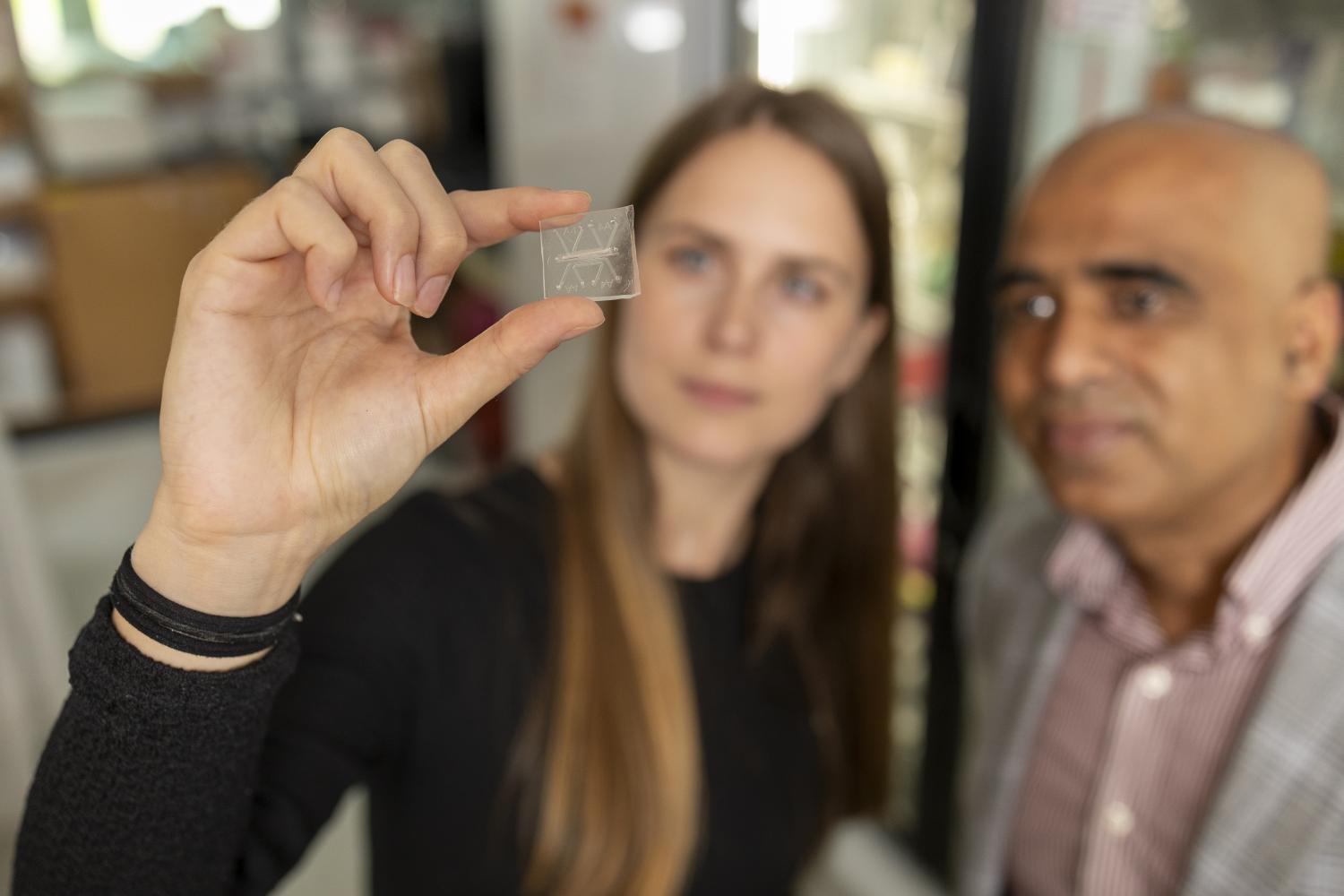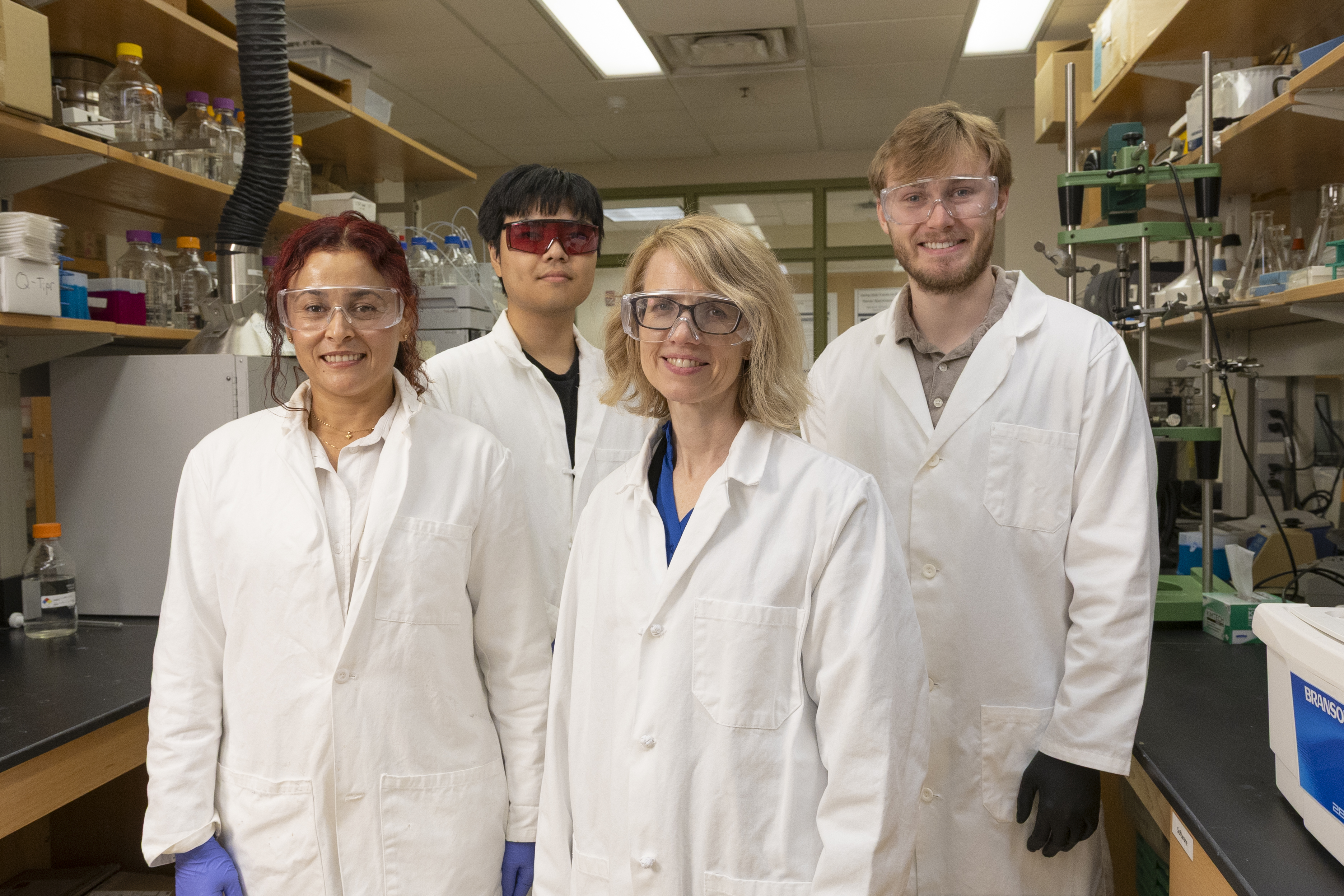Jan. 29, 2025
Noura Howell and Joe Bozeman lead the “Microscale Thermal Tech for Sustainability” research initiative for the Institute for Matter and Systems at Georgia Tech. Their research in this role focuses on sustainable thermoregulation strategies for climate change resilience. Howell is an assistant professor of digital media in the Ivan Allen College of liberal Arts, and Bozeman is an assistant professor of Civil and Environmental Engineering.
In this brief Q&A, Howell and Bozeman discuss their research focus, how it relates to Matter and System’s core research focuses, and the national impact of this initiative.
What is your field of expertise and at what point in your life did you first become interested in this area?
Howell's field of expertise is Human-Computer Interaction, particularly embodied interaction design research and design futuring. Embodied interaction design research is about designing interactions with technologies that involve more of humans' bodies beyond just eyes on a screen and hands on a mouse or keyboard. Thermal perception (feeling warmth and coolness) is an important part of human embodied experience, and designing technologies for thermal perception is an exciting area of design research. Design futuring, Howell's other sub-speciality, offers ways to envision, discuss, and debate future scenarios with technology. So, this proposal uses design futuring to explore alternative futures for thermal technologies for sustainability.
Howell has been interested in sustainability ever since she was a kid growing up playing in the woods in Florida, picking wild citrus, watching the lizards, frogs, snakes, armadillos, and birds, helping the tortoises cross the road, and canoeing near gators. Howell has been interested in thermal interactions ever since she was a kid in elementary school on the hot Florida playground, touching a hot metal jungle gym bar, and noticing that it felt so hot that it felt cool. Much later, she learned about thermoreceptors in our skin and that this phenomenon is called paradoxical cold, when some cold receptors in our skin respond to high temperatures.
Bozeman's field of expertise is in sustainable energy development, climate change adaptation/mitigation, and developing equitable solutions for socioecological, urban carbon management, and food-energy-water nexus challenges. Bozeman does life cycle assessment and energy systems modeling for sustainability with a special emphasis on the social receptivity of technological administration.
Bozeman first became interested in this area during his time working for the public sector as a sustainability officer and energy manager. In those roles, he oversaw and addressed many sociotechnical challenges regarding indoor comfort, air quality, and compliance with environmental protection laws. During this period, it became clear to him that more needed to be done in thermoregulation and the systems that facilitate it.
What questions or challenges sparked your current research?
Thermoregulation, or maintaining a healthy body temperature, is essential for survival. Meanwhile, the world is getting hotter, and humans must adapt. When people feel too hot, it can hinder their productivity, and extreme heat can lead to death. HVAC uses too much energy and struggles to accommodate the wide variety of thermal comfort preferences of building occupants, while many people work outdoors.
Our project tackles the challenge of sustainable thermoregulation.
Matter and systems refer to the transformational technological and societal systems that arise from the convergence of innovative materials, devices, and processes. Why is your initiative important to the development of the IMS research strategy?
This proposal combines thermal technology and microscale fabrication to innovate sustainable thermoregulation strategies for climate change resilience. This helps advance IMS research strategy in their interdisciplinary areas of microelectronic technologies, built environment technologies, and human-centric technologies. While this project is only a start, sustainable thermoregulation will require transformational technological and societal systems shifts arising from the convergence of innovative materials, devices, and processes, and so this project is a good fit for IMS, and we are very happy to be working on this project under the auspices of IMS.
What are the broader global and social benefits of the research you and your team conduct?
This proposal convenes transdisciplinary expertise across Georgia Tech and beyond to propose agenda-setting visions for future work to establish the significance of this research nexus on more sustainable ways to support people in maintaining a comfortable, healthy body temperature. This is an essential form of climate change resilience and adaptation. This proposal has the potential to impact science, technology, and society through bringing disparate disciplines together to establish a new research area of sustainable, microscale thermoregulation techniques for climate change adaptation. This research promises to conceptually advance the state-of-the-art via design futuring scenarios, future visions of just-around-the-corner possibilities in this new research area.
What are your plans for engaging a wider Georgia Tech faculty pool with the Institute for Matter and Systems research?
We will convene researchers across Georgia Tech and beyond to exchange expertise, brainstorm wild ideas, and synthesize ideas into design futuring scenarios. Stay tuned for interview and workshop opportunities.




